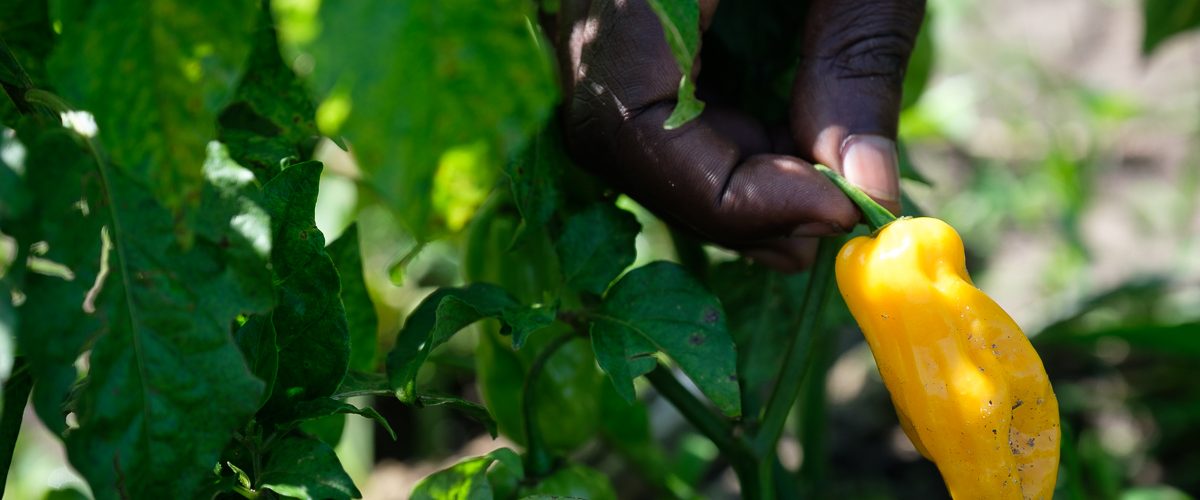PAFO’s new study, Impact of Covid on African Farmers: Challenges faced by farmers and responses already in place or recommended, maps the effects of the Covid-19 crisis on the agricultural sector in Africa, with a focus on family farms and food supply chains. Common challenges are presented and appropriate recommendations are proposed. While sub-Saharan Africa has not experienced as many Covid-19 cases as other regions, countries throughout the area have been under varying levels of restrictions which have had a huge impact (GeoPoll, 9 December). In November, GeoPoll conducted a study in Côte d’Ivoire, Democratic Republic of the Congo, Kenya, Mozambique, Nigeria and South Africa to gauge how lives have changed in 2020, people’s views on the future, and their willingness to take a vaccine. Initially scheduled to take place in Bordeaux in June 2020, the next Africa-France summit will be held in July 2021 in Montpellier (Midi Libre, 20 November). The summit, which usually brings together French and African leaders every three years or so, was postponed due to Covid-19 restrictions. President Macron said “We are not going to organise a classic summit, inviting heads of state. Our objective is to highlight people who embody generational renewal, including at the political level.” Société Générale and the European Investment Bank (EIB, 17 November) have announced a new joint initiative to support economic development across Cameroon. The new financing is part of the EIB’s broader support for private sector development and help to increase the economic resilience of companies across Africa and around the world facing economic, social and health challenges and the Covid-19 pandemic. Cameroon’s Minister for small and medium sized companies, social economy and artisans launched the financing programme, which will benefit hundreds of SMEs, accelerating investment through more flexible financing conditions. A similar credit line is in place in Benin; other initiatives in central Africa will be announced in the coming weeks. The East African Business Council (EABC) has urged East African Community (EAC) partner states to harmonise investment incentives and market the six-member bloc as a single investment destination (The New Times, Rwanda, 10 December; Citizen Digital, Kenya, 10 December). During a two-day EABC virtual conference on trade and investment opportunities in the region in the post Covid-19 era, it was noted that non-tariff barriers continue to hinder cross-border trade due to different measures on Covid-19 in the region. According to professionals in the lychee sector in Madagascar, the Covid-19 crisis in Europe, the main export market for lychee from Madagascar, is likely to impact on demand. Madagascar should export between 12,000 and 14,000 tonnes of lychees this year, far less than the 18,000 tonnes exported in 2018 (Fructidor, 24 November). First Global Bank (FGB) has been pushing out a suite of bundled e-commerce services for SMEs to help them pivot to digital platforms in the current Covid-19 business environment (Jamaica Observer, 9 December). Sectors such as agriculture are given special attention. While take-up has been slow at first, interest is now growing. A recent Brussels Dialogue organised by the Food and Agriculture Organization (FAO) looked at mitigating Covid-19 impacts on Small Island Developing States (SIDS) (FAO, 10 December). FAO Director-General Qu Dongyu noted that the SIDS face unique vulnerabilities and challenges, which have been further aggravated by the Covid-19 pandemic. Also speaking at the Dialogue were the Presidents of Guyana, Suriname, Palau, Samoa, São Tomé and Príncipe, and Fiji. The leaders noted that Covid-19’s impact was severe even where the virus did not spread, citing concerns about fewer remittances, school closures and increasing dropout rates. They called for debt relief, technical help to pursue innovation, technology, and an enabling environment for private sector investments in agri-business. New surveys of families in PNG and the Solomon Islands by the World Bank (Devdiscourse, 9 December) have found that more than 85% of households are using a range of coping strategies to manage the current economic crisis in their daily lives, with more than half of respondents in PNG reporting that they had reduced the number of children at school, and more than half of Solomon Islands respondents saying that they had reduced the amount of food they are eating. The surveys were undertaken in June and July, before the significant increase in cases in PNG in August and before the first cases were detected in the Solomon Islands at the end of October.PAFO: Impact of Covid on African farmers
Ongoing impact of Covid-19 in six African countries
Africa-France summit to be held in July 2021
Cameroon: 10 billion FCFA support for SME investment
Marketing the EAC as a single investment destination
Uncertainties over demand in Europe for new lychee season
Jamaica: bundled e-commerce services for SMEs
Small Island Developing State leaders join FAO to explore pathways to resilience
Papua New Guinea and Solomon Islands: impact of Covid-19
ACP news – Post date: December 15th, 2020.

